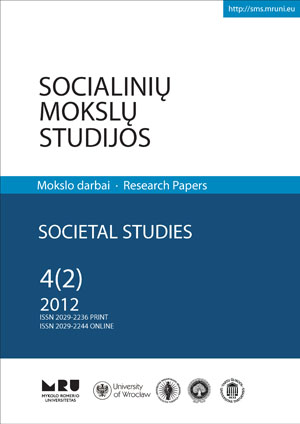Aristoteliškoji juslinės substancijos samprata ir individo problema
Aristotelian Concept of Sensual Substance and the Problem of an Individual
Author(s): Povilas AleksandravičiusSubject(s): Social Sciences
Published by: Mykolas Romeris University
Keywords: substance; individual; form; matter; quiddity
Summary/Abstract: The article analyzes the significance of the concept of substance in theoretical philosophy of Aristotle (in the books of Metaphysics and Physics) as well as the understanding of the individual emerging from it. Two meanings of the concepts of substance of the several possible ones are accentuated: subject and essence. It is demonstrated why Aristotle centres himself by the meaning of the subject. It is revealed towards what conflict there lead the logical and physical-empirical studies: if the first one allows stating that substance is form, then the second one comes to a conclusion that substance can be the matter. The article demonstrates how Aristotle solves this conflict. The essence of the decision lies in the identification of substance with form, what is grounded by Aristotle while analyzing the process of emergence of the natural and manufactured thing: he shows that the latter is the transference not of matter but of form from the causal thing to the emerging thing, and that this form is not new, but rather the same. This allows identifying the substance as an individual subject with its quiddity. This operation determines the concept of the individual: in Aristotle’s system of theoretical philosophy, an individual becomes just the means for keeping the existence of the species, and scientific knowledge generally does not consider the individual as the real objects of itself. Aristotle finds our time-specific perception of an individual unacceptable, and awards the value of reality and the reality itself as it is precisely to an original individual who does not fit into general concepts, to a novelty, relation or a person. The Aristotelian conception of “the last difference”, analyzed in the article, approves this. The following interpretation of the substance of Aristotle, although not being the only one possible, was predominant in Western metaphysics till the 19th century, raising the tension with the perception of human substance as a person emerging during the first ages of our era (stoic, neo-Platonism and mostly Christianity): the article uncloses the perspective of this further thinking.
Journal: Socialinių mokslų studijos
- Issue Year: 4/2012
- Issue No: 2
- Page Range: 503-516
- Page Count: 14
- Language: Lithuanian

